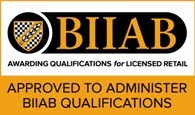Title – Dying for a drink / Tell people what is a safe level and what is notSource – The Times
Date – 21st May 2009
Undoubtedly there are many people in the UK who have a bad relationship with alcohol and I don’t think you’ll find too many people who would not acknowledge that alcohol has a detrimental effect on health and on communities when consumed in excess.
The question is how we redress that balance without preaching at people, patronising them or scaremongering.
No one likes being told what to do, let alone by a government who don’t exactly hold the moral high ground. However people are willing to accept well presented information, from reliable sources without a hidden agenda and most importantly they demand to be allowed to make their own decisions.
Whenever I run a
National Certificate for Personal Licence Holders (NCPLH) course and we get to the section on the negative effect of alcohol on health or when I run Certificate in Alcohol Awareness (CAA) courses or an Award in Responsible Alcohol Retailing courses (ARAR), I get a frightening number of blank faces when I demonstrate the consequences of chronic drinking.Date – 21st May 2009
Undoubtedly there are many people in the UK who have a bad relationship with alcohol and I don’t think you’ll find too many people who would not acknowledge that alcohol has a detrimental effect on health and on communities when consumed in excess.
The question is how we redress that balance without preaching at people, patronising them or scaremongering.
No one likes being told what to do, let alone by a government who don’t exactly hold the moral high ground. However people are willing to accept well presented information, from reliable sources without a hidden agenda and most importantly they demand to be allowed to make their own decisions.
Whenever I run a
This always particularly surprises me on the NCPLH courses as candidates have usually been working in the Licensed Retail Sector for some time at that point. Not only that, but when we hand out the ‘wheels’ which allow them to see the number of units each drink contains, I can see them working out their own unit count; the reactions vary from candidate to candidate, but frowns and nervous giggles are not uncommon.
We have also been showing the governments last round of advertisements on the ‘Unit system’ (see You may be drinking more than you think) and we generally find that most candidates either do not recognise the advertisements or that the subtlety was lost on them.
Interestingly, I never find any resentment from those I teach when we talk about the number of units which can be consumed in ‘safe’ levels; from our feedback forms we find that our trainers ‘experience’ and ‘knowledge’ are rated very highly by candidates attending our courses; maybe that is the trick.
Maybe it is more simple than that; we tell candidates the facts and present them in a straight forward manner, we treat people as adults and we credit them with the intelligence to make their own decisions based on the information available to them.
I don’t for a second claim that our courses stop people binge drinking or developing chronic alcohol addiction, but I do claim that if we are able to at least pass on the information in a constructive manner then the government should be able to come up with a plan for this to happen in a wider spectrum. It may not be the solution, but it would go some way to relieving some of the problem related to alcohol consumption.
At Beyond The Blue we run a number of courses for those working in the Licensed Retail Sector to help them sell alcohol more responsibly. These include; The Award in Responsible Alcohol Retailing (ARAR) designed for front-line staff to help them meet their statutory requirements; The National Certificate for Personal Licence Holders (NCPLH) which qualifies candidates to apply for their personal licence; Our Conflict Management and Resolution (CMR) course compliments these courses to help employees deal with Workplace Violence and alcohol related disorder.
Please visit our website at www.btbl.co.uk. For a complete list of Blog entries visit our National Press Archive page.
For more information on any of our services, please call us on 0845 602 55 95 or Contact Us.






No comments:
Post a Comment